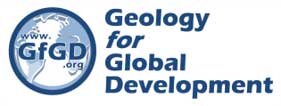Commitment to Good Practice (Code of Conduct)
Geology for Global Development (GfGD) believes that everyone has a right to be treated fairly and with dignity and respect. We are committed to promoting safe environments for all individuals that are employed on, participate in, or otherwise encounter, the activities that we fund and help deliver. We consider safe environments to be those which are free from sexual exploitation, discrimination, abuse and harassment (including racism), bullying, psychological abuse, and physical violence.
To this end, GfGD has developed and adheres to a set of policies and statements. Together these support all GfGD staff, volunteers, partners, and trustees to enhance their approach to preventing and addressing actual or potential harm in their activities relating to GfGD, building on good practice where it exists.
The codes and policies outlined below include our expectations on all those involved in GfGD activities. Actions found to be in-breach of these codes and policies may be subject to a ban on participation in our activities, disciplinary procedures, or potential legal action.
External Policies, Codes and Statements
a. Cape Town Statement on Geoethics. We are a signatory to this high-level statement, aiming to improve policies (including anti-harassment and anti-discrimination policies), guidelines, strategies and tools to ensure the embracing of (geo)ethical professional conduct in our work.
b. Geological Society Code of Conduct for Meetings and Other Events. We endorse and apply the principles of this code of conduct to all GfGD meetings and events. This aims to provide a safe, productive and welcoming environment for all participants and attendees of our meetings, workshops, and events regardless of age, gender, sexual orientation, gender identity, race, ethnicity, religion, disability, physical appearance, or career level. This Code of Conduct applies to all participants in GfGD related activities, including, but not limited to, attendees, speakers, volunteers, exhibitors, staff, service providers, representatives to outside bodies and external events, and applies in all GfGD activities, including ancillary meetings, events and social gatherings.
c. AGI Statement on Harassment in the Geosciences. We endorse this statement, referring to harassment in all professional, educational, and informal geoscience settings. All GfGD activities shall be conducted in a professional atmosphere in which all participants are treated with courtesy and respect and work consciously to promote an environment free from inappropriate behaviour and harassment by or toward all participants.
d. Bond Statement of Ethical Practice on NGO Content Gathering and Use. We endorse this statement which outlines our responsibilities for and commitments to ethical practice when gathering and using images and stories to communicate our work.
GfGD Policies, Codes and Statements
e. Preventing Harm (Safeguarding) Policy. This policy details the framework through which we are developing a culture of safeguarding at all levels throughout GfGD. This policy outlines our commitments to prevent harm and to promote the wellbeing of all involved in our work and informs and directs staff and volunteers in the use of our safeguarding framework.
f. External Communications Policy. This policy (currently under review) is designed to ensure professional, respectful, and relevant communications by all those representing GfGD, thereby protecting all participants of GfGD activities, the general public, and our reputation. This policy applies to all those representing GfGD.
g. Privacy Notice. This notice sets out what to expect when GfGD collects personal information, and how this information is stored and accessed. This policy highlights our commitment to seek permission before taking photographs or videos during GfGD activities and outlining how these will be used.
h. Complaints Policy. We view complaints as an opportunity to learn and improve for the future, as well as a chance to put things right for any person or organisation making a complaint that is upheld. Our aim, set out in this policy, is to provide anyone wishing to make a complaint with a fair, simple procedure which is easy to use, and to ensure that all relevant parties know how to deal with it in a fair and timely way.
Last amended: 29 January 2021
